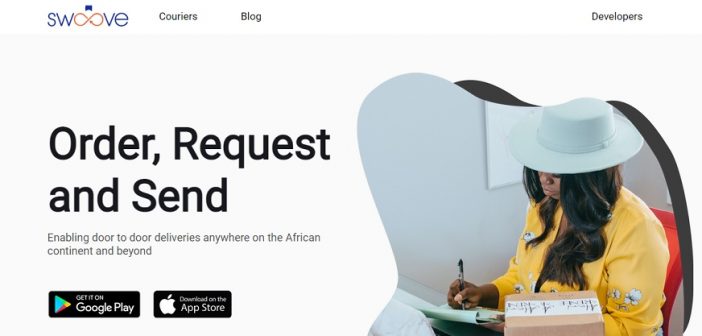Non-Negotiable Startup Founder Skills needed to Scale

In my experience in the Startup space, I have spoken to at least 30 founders. Although it is impossible to meet the perfect person in any circumstance, it is possible to attain a level where one can be ranked as a professional and have the ability to manage a business and people effectively.
Starting a business as an entrepreneur is risk-filled and initiative-driven, so the founder needs to have specific skills to make things work effectively. I know it is not possible to be a Jack of all trades, but there is the option of hiring people who can substitute for the absence of the skills when you lack some skills as an entrepreneur.
Let’s start from the beginning.
I first heard the word Startup when I graduated from school and interviewed for a logistics operators position in Jumia Market. I went on the internet to read as much as possible, but the explanation didn’t hit home. But as I ventured into Fintech through Flutterwave, the word became more rampant, primarily while we were fundraising. I now find myself very closely related to the word “Startup” throughout my journey of raising capital to help founders build great products to solve problems. When people ask me what a startup is, I simply say the word ‘startup’ denotes a beginning or infancy, which is true. A Startup is a company in the early stages of development. Startups are created to solve a problem, disrupt industries, and change the world.
Entrepreneurs found startups to make a difference, and they make this change by presenting a scalable business. As a founder, to grow a client base, raise funds, and create a structure in your business, you need specific skills, talents, and abilities, aside from the massive competition of other startups fighting for the attention of your potential customers, ensuring that the business survives another challenge that the right resources and knowledge would solve.
I counsel the startups under my portfolio that they cannot succeed without the proper skill set. Skills are necessary to navigate life and become extremely handy when scaling. As part of the frameworks I share with the founders, I have the following nuggets to groom them for growth, and I have seen the impact on the founders who have adopted them.
Skills Needed by Startup founders.
When I talk about the skill sets here, they include the team, talents, hire, knowledge, abilities, and all the know-how needed by Startups to cross the five and ten-year mark. Statistics have proven to be the lifespan of most small businesses. Let us begin with the founding team and their importance to the growth of the business.
Every organisation or business should have a management or governing team. They are the driving force of the business and define the company’s vision. The founding team usually is the first set of talent put together or hired by the innovator, and in some cases, they all come together to actualise a similar vision. The founding team shapes the company’s brand, culture, voice, and product.
I love this statement by Steve Jobs, “When you’re in a startup, the first ten people determine the business’s success. Each is 10 per cent of the company. So, why wouldn’t you take as much time as necessary to find all the A-Players?… A small company depends on great people much more than a big company.”
It is crucial to get the right people, funding capital and processes for the business to bloom and ensure you are constantly improving yourself as an entrepreneur. Enough advice has been given on the importance of having the right skills. Let us go into detail about what these skills are.
I always categorise the skills into three when I train founders, and they are;
– General Skills
– Business Skills
– Technical Skills
General Skills
These skills are skills every individual should have to succeed, whether you are running a business or not. One cannot navigate the business world without these skills, either as an employer of labour or an employee. These skills, which also cover interpersonal skills, set you apart as an excellent leader, communicator, and strategist. I will go ahead to further dissect this classification for proper understanding.
– Critical Reasoning
– Problem-Solving Skills
– Creativity
– Persistence
– An appetite for Risks
– Adaptability to Change
– Focus
– Good Leadership and Management Qualities
– Ability to delegate
– Good Communication Skills
– Project and Time Management
The general skills are foundational for the entrepreneur; adding business skills makes the blend better.
Business Skills
This is where my strength lies in the triangle of required skills for entrepreneurs. I always let founders know that Business skills are essential when building a business. It is not just about the attitude or soft skills, but you also need to understand the numbers and finances. This is why a founder should possess the skills of managing cash flow. A healthy cash flow will provide financial security for the company, predicting business success. As an entrepreneur, learn all about money; how to plan for/with it, budget it, and forecast around it.
Two primary skills business skills help business owners thrive in maintaining a healthy financial status:
Basic Accounting and Bookkeeping Skills: I have realised from experience that many startups cannot employ a Financial Officer at the beginning of operations. This requirement automatically rests on the founders of the business. While you might hire an accountant to manage and keep track of the funds, as a founder, you should have a good knowledge of numbers, enough to know when there are any inconsistencies or a cause for alarm. I am not saying you need to gain all the accounting knowledge through education and certifications; you just need to be able to not run the business to the ground due to a lack of these skills.
Sales Skills: I have always loved business and sales. While we were fundraising, I honed my sales skills by perfecting the pitch and coherently convincing investors to invest in our fund. I say all the time that every entrepreneur should have sales skills. How do you intend to raise funds for the business or even pitch to investors if you cannot sell your product or idea? You are always selling something at every point in time, be it the business, the vision to the employees and colleagues or even your abilities.
Good sales skills are critical when setting yourself as a founder for success.
Learn the necessary skills to keep the business productive. I always tell founders to look out for co-founders who have excellent business skills to put the team together so everyone is aligned. However, it is recommended that if your company has a product or service to sell, the founder needs to understand how to sell and have a clear plan for product development.
Technical Skills
As a founder, the vision of the business is yours, which is why it is imperative to ensure the other team members are correctly aligned while building. A founder should know the product and basic product development skills to bring it to life. I am not saying one must be an engineer, but you cannot want to succeed in the digital technology space and not know how to navigate through it. Some technical skills I talk to some innovators about include but are not limited to web development, product development and management, design skills, digital marketing.
Designing Your Business for Growth
From the founding team to the employees, if each team player possesses the above-listed qualities and focuses on the business goal, it will drastically reduce the possibility of the business failing. As I mentioned earlier, I am aware it is impossible (except in specific cases) for one person to have all the qualities above. Still, a team with a combination of the various skills will be very productive. To summarise the skills for growth, here is a framework I put together to help design businesses for success.
– Steadily promote your business. Anywhere you find yourself, tell everyone about your company and dreams, trust me, the PR is great for projection.
– Hire the right team. While you are not perfect and the team might not be flawless, strive to ensure you are working with like minds to promote focus in achieving your goals.
– I have learnt not to be everywhere but nowhere. This means having a Northstar and working towards it with focus and direction. You cannot solve all the existing problems, so why not start one at a time. Always be specific about your goals.
– Your customers are vital to the business. The product or solution must be designed to be adaptable by the customers; if not, all the efforts could be a waste. Who are you solving for?
– Know your competition. Learn from them, and get better. When we started Future Africa, I analysed our competitors, which helped us design a strategy that grew the business.
– Scale! Scale! Scale! Growth should be your priority. You do not want to remain a startup forever. You will need to expand at some point, and this won’t be possible if it is not a part of your thought process.
– Stakeholder management. An external person or institution will be involved in your business at some point or another. The way you manage stakeholders can make or break the business as they include the investors, customers, vendors, employees, founders and everyone involved in the business. The general and business skills come in very handy because you will need them to manage these sets of essential people.
It is the responsibility of founders to ensure they try their best to make the business successful. The founders’ attitude can make or break the business, and setting oneself apart makes you succeed in the industry. Once you make up your mind to be a better person and adopt these skills, I can confirm from experience that the sky is your starting point. As the common phrase says, you begin the change at home.
Every startup founder is identified and honoured for their end achievements. However, behind the scenes, the hustle and battles are always present. Each one matters, and they should consistently be improved as your business keeps advancing! Before starting the incredibly challenging journey, reevaluate your current self, proficiency, skills, and mindset.






